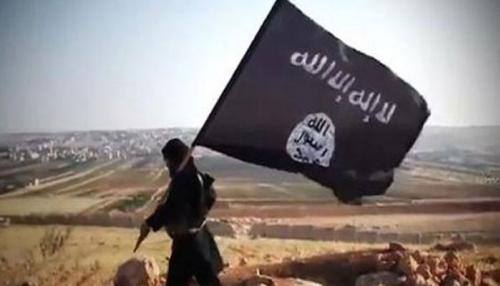- News>
- World
IS wreaks new destruction in Syria`s ancient Palmyra

The Islamic State group has demolished more treasured monuments in Syria`s ancient Palmyra, a month after recapturing it from government forces, the country`s antiquities chief said Friday.
Damascus: The Islamic State group has demolished more treasured monuments in Syria`s ancient Palmyra, a month after recapturing it from government forces, the country`s antiquities chief said Friday.
The news is a fresh blow for the UNESCO World Heritage site, which had already been ravaged by the jihadist group during the nine months it held the site before being expelled in March last year.
"Local sources told us that 10 days ago Daesh destroyed the tetrapylon," a 16-columned structure that marked one end of the ancient city`s colonnade, Maamoun Abdulkarim told AFP using an Arabic acronym for IS.
"Yesterday (Thursday), we received satellite photographs from our colleagues at Boston University showing damage to the facade of the Roman amphitheatre," he added.
Before being forced out of Palmyra in a Russian-backed offensive in March, IS razed world-famous temples and tower tombs at the site.
The tetrapylon, built during the rule of the Roman Emperor Diocletian in the 3rd Century AD, consisted of four sets of four pillars each supporting massive stone cornices.
The monument had suffered considerable damage over the centuries and only one of the 16 pillars was still standing in its original Egyptian pink granite. The rest were cement replicas erected by the antiquities department in 1963.
The Roman amphitheatre dates to the 1st Century AD and was used by IS for public executions during its occupation of the city between May 2015 and March last year.
"From the first day, I was bracing myself for a terrible outcome," Abdulkarim said.
"We had already witnessed the terror of the first occupation and frankly I had never thought that the city would be occupied for a second time."IS recaptured Palmyra late last year as Syria`s government waged a fierce battle to take back all of the northern city of Aleppo from rebel forces.
The surprise fall of Palmyra, in the central province of Homs, gave IS a propaganda boost as it faced twin assaults on two of its key strongholds -- Raqa in Syria and Iraq`s second city Mosul.
Syrian forces have battled to prevent further IS advances around Palmyra, and on Thursday fierce clashes between pro-government fighters and jihadists near a military airport in the region left 30 dead, a monitor said.
The Syrian Observatory for Human Rights said 12 regime forces and 18 IS militants had been killed in the fighting by the Tayfur military airport in Homs province.
Despite its progress around Palmyra, IS lost nearly a quarter of its territory in Syria and Iraq last year, the research firm IHS Markit said Thursday.
The jihadist group is just one of the many forces involved in Syria`s complex conflict, which began with anti-government demonstrations in March 2011 and has killed more than 310,000 people since then.
The war has drawn in foreign powers including government ally Russia and a US-led coalition battling IS and other jihadists.
Late Thursday, air strikes killed more than 40 jihadists from the former Al-Qaeda affiliate Fateh al-Sham Front in the west of Aleppo province, the Observatory said.
But the Britain-based monitor said it was not able to determine if the strikes were carried out by Russian or coalition aircraft.
Fateh al-Sham, known previously as Al-Nusra Front, is excluded from a fragile nationwide ceasefire in place in Syria since December 30.The truce, brokered by regime ally Russia and rebel backer Turkey, is intended to pave the way for fresh peace talks in the Kazakh capital Astana beginning January 23.
The nature of the talks remains murky, and there has been little indication the two sides have shifted their positions since previous rounds of failed negotiations.
President Bashar al-Assad, speaking to Japan`s TBS television in an interview released in full Friday, appeared to dismiss the possibility of a transitional government or his resignation.
Both are key demands of the opposition.
"In our constitution there`s nothing called transitional government," Assad said.
"Whoever wants the president to leave, they can go to the ballot box," he added, saying the issue was "not something we discuss either with the opposition or with any other country."
"I`m not the reason of the problem."
Assad also reiterated his hope that US President-elect Donald Trump, who will be inaugurated later Friday, could be a partner going forward.
"We hope that they are genuine to forge a real and realistic alliance to fight the terrorists in the region, and that of course will include Syria first of all," he said.
